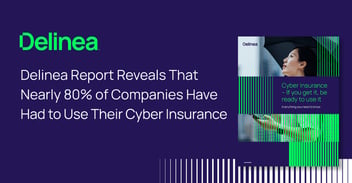Global Pandemic Has Accelerated Cloud Transformation for Nearly Half of Organizations, Reveals Centrify Survey
Delinea Team
SANTA CLARA, Calif. ― October 14, 2020 ― Centrify, a leading provider of Identity-Centric Privileged Access Management (PAM) solutions, today released new research that found nearly half of IT decision makers' companies had to accelerate their cloud migration plans (48%) and IT modernization overall (49%) during the COVID-19 pandemic. As they evolve to meet current and future requirements, the top two modernization priorities for the next 12 months are maintaining flexibility/security for remote work (38%) and digitizing more processes using cloud-native services (36%).
To fully understand the impact of this collective unprecedented experience, Centrify partnered with Censuswide to explore the state of enterprise IT landscapes six months into the global pandemic. For example, 43% revealed they had no plans to fully migrate to the cloud before March 2020. Beyond expedited digital transformation, the shift to distributed workforces led 60% of companies to review and adjust their cybersecurity postures and supporting tools.
The significant numbers revisiting their cybersecurity stack and accelerating their IT/cloud modernization are likely in response to challenges they’ve experienced as they moved to a distributed workforce -- including downtime or unexpected outages (59%), attempted breaches (23%), data loss (21%), successful phishing attacks (17%), insider threat incidents (13%) and ransomware (11%).
“October is National Cybersecurity Awareness Month, and there is no better time to take stock of how organizations are staying ahead of digital transformation by migrating to the cloud, which introduces new attack surfaces that require granular access control,” said Flint Brenton, President, and CEO of Centrify. “Our research shows that enterprises are learning from the pandemic and that the availability and flexibility gained in the cloud are must-haves in the new reality. This revelation will inform the world’s IT and security decisions long after COVID-19 diminishes in threat level.”
The evolving IT estate in 2020 has led teams to reprioritize modernization changes for the upcoming year. In addition to flexibility for remote staff and digitizing processes in the cloud, 26% are continuing to evaluate and update their security stacks, and 20% plan to introduce more automation and AI-based tools to take over mundane tasks.
Looking ahead to 2021, the good news is that emerging challenges and changes in technology needs have led to 35% obtaining IT budget increases, with another 50% stating that budgets will stay the same. With regards to headcount, 63% saw little to no impact on their teams, indicating that the majority of organizations will have both the budget and resources to maintain or grow their cybersecurity and IT programs. A quarter of respondents indicated that their company plans to keep their entire workforce 100% remote.
Complete results of the survey are available at http://bit.ly/CENSurvey. To learn more about Centrify visit www.centrify.com.
*The survey of 215 IT decision-makers across the U.S. was conducted by CensusWide in September 2020.
About Centrify
Centrify is redefining the legacy approach to Privileged Access Management by delivering multi-cloud-architected Identity-Centric PAM to enable digital transformation at scale. Centrify Identity-Centric PAM establishes trust and then grants least privilege access just-in-time based on verifying who is requesting access, the context of the request, and the risk of the access environment. Centrify centralizes and orchestrates fragmented identities, improves audit and compliance visibility, and reduces risk, complexity, and costs for the modern, hybrid enterprise. Over half of the Fortune 100, the world’s largest financial institutions, intelligence agencies, and critical infrastructure companies, all trust Centrify to stop the leading cause of breaches – privileged credential abuse.
©Centrify is a registered trademark of Centrify Corporation in the United States and other countries.


